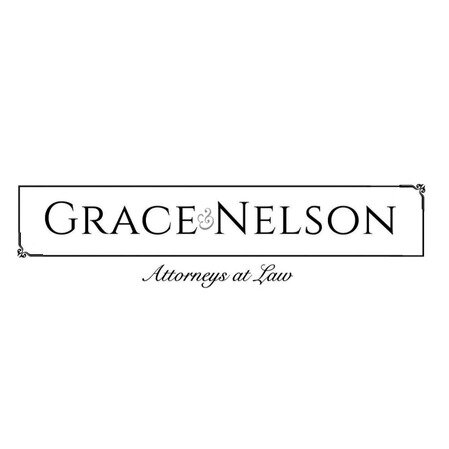Best Energy, Environment & ESG Lawyers in Ecuador
Share your needs with us, get contacted by law firms.
Free. Takes 2 min.
Or refine your search by selecting a city:
List of the best lawyers in Ecuador
About Energy, Environment & ESG Law in Ecuador
Ecuador is a nation rich in natural resources, with significant reserves of oil, minerals, and renewable energy potential. This abundance has made the country a hub for energy-related development, but it also brings challenges regarding environmental protection and sustainable practices. Energy, Environment & ESG (Environmental, Social, and Governance) law in Ecuador encompasses the regulation of energy production and use, conservation of natural resources, protection of the environment, and promotion of responsible corporate conduct. These laws set the framework for companies and individuals to balance development goals with the need to protect ecosystems, respect local communities, and meet international ESG standards.
Why You May Need a Lawyer
Legal counsel can be crucial in navigating the complexities of Ecuador’s Energy, Environment & ESG landscape. Common situations where legal help is needed include:
- Obtaining licenses and permits for energy projects or natural resource extraction - Facing environmental liability or responding to enforcement actions - Understanding and implementing ESG requirements for investments or corporate social responsibility - Resolving disputes over land use, indigenous peoples’ rights, or environmental damages - Participating in government tenders or contracting with state agencies - Handling mergers or acquisitions involving regulated sectors or protected land - Adapting company operations to evolving environmental or energy policies - Reporting on sustainability or complying with international investor expectations - Dealing with community consultations or social impact evaluations
Given the fast-evolving field, a lawyer experienced in Ecuadorian law can help ensure compliance, protect interests, and foster positive stakeholder relations.
Local Laws Overview
Ecuador’s legal framework for energy, environment, and ESG includes several critical statutes and regulations:
- The Constitution of Ecuador, which recognizes nature’s rights and prioritizes responsible natural resource management. - The Hydrocarbons Law and the Mining Law, which govern the extraction and commercialization of oil, gas, and minerals. - The Environmental Organic Code (COA), the main legal instrument for environmental regulation, outlining procedures for environmental licensing, evaluation, and protection. - The Organic Law for the Rationalization, Optimization, and Efficiency of the Hydrocarbons Activities allows public-private partnerships and directs sustainable exploitation. - Decrees and Ministerial Agreements from the Ministry of Environment, Water, and Ecological Transition (MAATE), as well as from other sectoral ministries, regulate sector-specific activities. - Regulations concerning clean energy development, such as those promoting renewable energy projects and energy efficiency. - Obligations for environmental impact assessments (EIAs) before starting certain projects. - International commitments, like the Paris Agreement, influencing national policy and business responsibilities. - Growing ESG reporting and due diligence expectations, particularly for companies seeking funds from global investors or participating in international supply chains.
Compliance with these laws and regulations is strictly enforced, and failure to adhere can lead to significant financial, reputational, and operational risks.
Frequently Asked Questions
What permits are required for launching an energy or mining project in Ecuador?
Most energy or mining projects require environmental licenses, sector-specific permits, and social impact assessments. The licensing process is managed by MAATE and respective sector ministries. Early legal guidance is crucial for regulatory success.
How does Ecuador protect indigenous rights in energy and mining projects?
Ecuadorian law and international agreements require prior consultation with indigenous and affected communities before projects can begin. Failure to observe this process can halt or invalidate projects.
What is an Environmental Impact Assessment (EIA), and when is it necessary?
An EIA is a formal study to evaluate the environmental and social impacts of proposed projects. It is a prerequisite for most significant energy, mining, and infrastructure initiatives in Ecuador.
What penalties exist for violating environmental regulations in Ecuador?
Penalties range from fines and suspension of project operations to revocation of licenses or criminal prosecution for severe violations.
What is ESG, and why is it relevant for businesses in Ecuador?
ESG stands for Environmental, Social, and Governance factors. Companies are increasingly expected to demonstrate sustainable and ethical operations, both to comply with domestic law and meet international investor demands.
Can foreign companies invest in Ecuador’s energy sector?
Yes, Ecuador welcomes foreign investment in most segments of its energy sector. However, investors must comply with local regulations and may require local partnerships in certain strategic areas.
How can companies reduce their environmental liability in Ecuador?
Companies should ensure strict compliance with all environmental laws, obtain required permits, invest in mitigation, and have monitoring mechanisms in place. Proactive ESG strategies also help limit liability.
Are there incentives for renewable energy projects in Ecuador?
Yes, Ecuador has policies promoting renewable energy, such as feed-in tariffs, tax breaks, and fast-track permitting for certain renewable projects.
What governmental bodies oversee energy and environmental regulation?
The Ministry of Environment, Water, and Ecological Transition (MAATE) and the Ministry of Energy and Mines are primary regulators, with specialized agencies for hydrocarbons, mining, and electricity.
How can individuals or communities challenge a project on environmental grounds?
Affected parties may file administrative appeals, bring legal actions in court, or seek constitutional protection invoking the rights of nature or the rights of affected communities.
Additional Resources
Here are some institutions and resources that provide further information or assistance regarding Energy, Environment & ESG in Ecuador:
- Ministry of Environment, Water, and Ecological Transition (MAATE): Main government body for environmental policy and licensing - Ministry of Energy and Mines: Regulates and oversees energy and mining activities - Ombudsman’s Office: For claims regarding rights violations, especially involving affected communities - Environmental organizations such as Fundación Pachamama and CEDA (Centro Ecuatoriano de Derecho Ambiental) for advocacy and legal guidance - Ecuadorian Chamber of Industries and Production: Information on corporate ESG standards and business compliance - Official registry and government gazette for updates on laws and regulations
Next Steps
If you need legal assistance in Energy, Environment & ESG matters in Ecuador, consider the following steps:
1. Identify your specific needs, whether it is about a business project, compliance concern, or community rights. 2. Collect all relevant information and documentation related to your issue. 3. Seek legal counsel with experience in Ecuadorian energy, environmental, and ESG law. 4. Arrange a consultation to discuss your case and possible legal strategies. 5. Stay informed about changes in laws and regulations that may impact your interests. 6. Engage with local and national regulatory bodies early in the process. 7. Take proactive steps to comply with licensing, reporting, and environmental obligations to minimize risk.
Navigating Energy, Environment & ESG law in Ecuador can be challenging without specialized knowledge. Consulting an experienced attorney ensures compliance, protects your rights, and helps achieve successful outcomes in this evolving legal landscape.
Lawzana helps you find the best lawyers and law firms in Ecuador through a curated and pre-screened list of qualified legal professionals. Our platform offers rankings and detailed profiles of attorneys and law firms, allowing you to compare based on practice areas, including Energy, Environment & ESG, experience, and client feedback.
Each profile includes a description of the firm's areas of practice, client reviews, team members and partners, year of establishment, spoken languages, office locations, contact information, social media presence, and any published articles or resources. Most firms on our platform speak English and are experienced in both local and international legal matters.
Get a quote from top-rated law firms in Ecuador — quickly, securely, and without unnecessary hassle.
Disclaimer:
The information provided on this page is for general informational purposes only and does not constitute legal advice. While we strive to ensure the accuracy and relevance of the content, legal information may change over time, and interpretations of the law can vary. You should always consult with a qualified legal professional for advice specific to your situation.
We disclaim all liability for actions taken or not taken based on the content of this page. If you believe any information is incorrect or outdated, please contact us, and we will review and update it where appropriate.
Browse energy, environment & esg law firms by service in Ecuador
Ecuador Attorneys in related practice areas.
Browse energy, environment & esg law firms by city in Ecuador
Refine your search by selecting a city.















